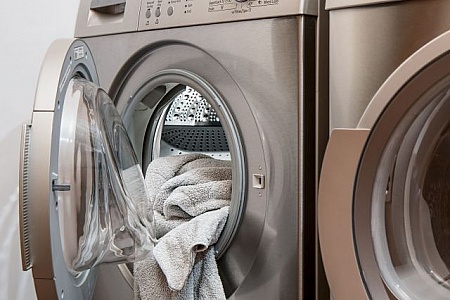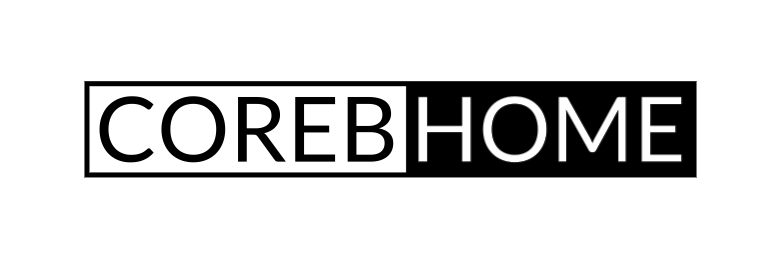In the modern tapestry of household living, the seamless operation of appliances is integral to the rhythm of daily life. This comprehensive guide aims to unravel the nuances of appliance usage and maintenance, providing professional insights and strategies to optimize their performance. From understanding proper usage practices to implementing meticulous cleaning routines, this discourse seeks to empower homeowners with the knowledge to prolong the lifespan and efficiency of their appliances.
Section 1: The Art of Proper Appliance Usage
To maximize the lifespan and efficiency of household appliances, a fundamental understanding of proper usage practices is crucial. This section outlines key considerations for each major category of appliances.
1.1. Refrigerators and Freezers:
Refrigerators and freezers, the heartbeats of the kitchen, require mindful usage. Avoid overloading shelves, as proper air circulation is essential for efficient cooling. Set temperatures according to manufacturer recommendations to balance freshness and energy efficiency. Regularly defrost freezers to prevent ice buildup, optimizing performance and preserving the longevity of the appliance.
1.2. Washing Machines:
For washing machines, efficient usage extends beyond simply loading clothes. Distribute laundry evenly to prevent imbalance during the spin cycle, reducing wear on internal components. Use the recommended amount of detergent to avoid residue buildup and maintain optimal cleaning performance. Periodically clean the lint filter and inspect hoses for leaks to ensure a seamless laundering experience.
1.3. Dishwashers:
Dishwashers, designed for convenience, benefit from strategic loading. Avoid blocking spray arms and ensure proper spacing between dishes for thorough cleaning. Use quality detergent to prevent buildup and enhance cleaning efficiency. Regularly inspect and clean the filter and spray arms to maintain peak performance.
1.4. Ovens and Stoves:
Ovens and stoves, the culinary workhorses, demand careful usage. Preheat the oven as directed and avoid opening the door unnecessarily to preserve heat. Clean stovetops promptly after spills to prevent residue buildup. Regularly check and calibrate oven temperatures for accurate cooking results.
Section 2: The Symphony of Appliance Maintenance
Beyond proper usage, maintaining appliances through regular cleaning and upkeep is essential for their longevity and efficient operation. This section delves into the choreography of maintenance routines for various household appliances.
2.1. Refrigerator and Freezer Maintenance:
Periodically clean the coils at the back or underneath the refrigerator to optimize cooling efficiency. Empty and clean drip trays to prevent odors and mold growth. Check and replace door gaskets if damaged to maintain proper seals. Defrost freezers as needed to prevent ice buildup, ensuring optimal performance.
2.2. Washing Machine Maintenance:
Clean the washing machine drum and detergent dispenser regularly to prevent mold and mildew. Inspect hoses for leaks and replace them if necessary. Run an empty cycle with hot water and vinegar to clean the interior components and remove residue.
2.3. Dishwasher Maintenance:
Clean the dishwasher filter regularly to prevent debris buildup. Check spray arms for clogs and clean as needed. Run an empty cycle with a dishwasher-safe cleaner to remove mineral deposits and maintain optimal cleaning performance.
2.4. Oven and Stove Maintenance:
Regularly clean oven interiors, stovetops, and burners to prevent grease buildup. Check and replace oven gaskets if worn to ensure proper sealing. Calibrate oven temperatures periodically for accurate cooking results.
Section 3: Professional Assistance and Troubleshooting
In the event of malfunctions or performance issues, seeking professional assistance is often the most efficient solution. This section provides guidance on when to consult professionals and offers troubleshooting tips for common appliance issues.
3.1. When to Seek Professional Assistance:
Engage professional assistance for major repairs or issues beyond your expertise. This includes problems with the compressor in refrigerators, motor issues in washing machines, or electronic malfunctions in ovens and stoves. Professional technicians possess the knowledge and tools to diagnose and address complex problems, ensuring a reliable and safe resolution.
3.2. Troubleshooting Common Issues:
For minor issues, homeowners can perform troubleshooting before seeking professional help. Check power connections, circuit breakers, and fuses if appliances are not turning on. Inspect hoses and connections for leaks in washing machines and dishwashers. For ovens and stoves, verify that burners and heating elements are functioning correctly. Refer to the appliance’s manual for specific troubleshooting guidance.
Section 4: Eco-Friendly Practices for Appliance Use
In an era of increasing environmental consciousness, incorporating eco-friendly practices into appliance usage and maintenance is both responsible and sustainable. This section explores strategies for reducing energy consumption and minimizing environmental impact.
4.1. Energy-Efficient Usage:
Optimize energy efficiency by running appliances with full loads whenever possible. Use the energy-saving mode on dishwashers and washing machines. Consider air-drying dishes and clothes instead of using heat-intensive drying cycles. Regularly defrost freezers to maintain efficient cooling without excessive energy consumption.
4.2. Appliance Recycling and Disposal:
When it’s time to retire an old appliance, opt for responsible disposal methods. Many appliances contain recyclable materials, and recycling programs are available in many communities. Additionally, manufacturers and retailers may offer appliance recycling services. Proper disposal ensures that hazardous components are handled safely and that valuable materials are repurposed.
Conclusion:
Mastering appliance care is a multifaceted endeavor that combines proper usage, meticulous maintenance, and a commitment to eco-friendly practices. By understanding the specific needs of each appliance, implementing regular maintenance routines, and seeking professional assistance when necessary, homeowners can ensure the longevity and optimal performance of their household devices. Incorporating eco-friendly practices further contributes to a sustainable and responsible approach to appliance use. In embracing these principles, homeowners not only safeguard their investments but also contribute to a more efficient, environmentally conscious, and harmonious home environment.









No Comment